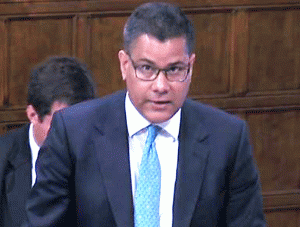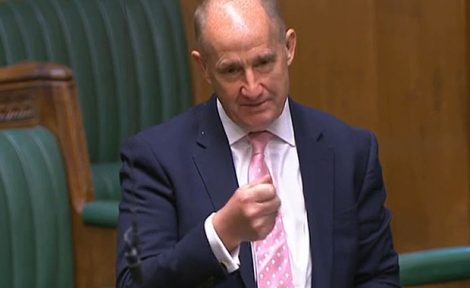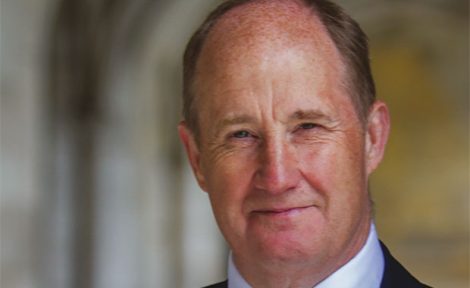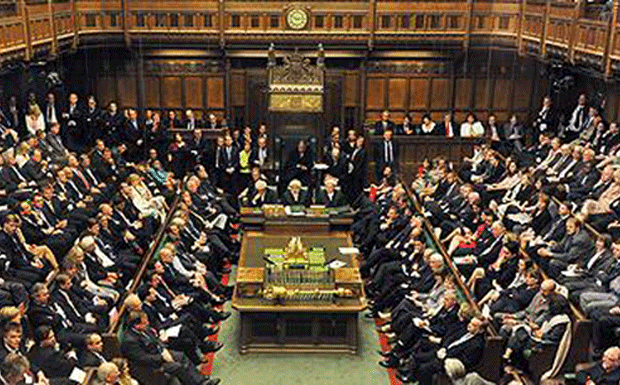Holding deposits to be excluded from letting fees ban, confirms Minister
Announcement comes during wide-ranging debate in Commons this morning led by former Hunters boss Kevin Hollinrake MP.
 Despite industry hopes that the government may be developing cold feet about an outright letting fees ban, Housing Minister Alok Sharma has today confirmed that draft legislation will soon be ready.
Despite industry hopes that the government may be developing cold feet about an outright letting fees ban, Housing Minister Alok Sharma has today confirmed that draft legislation will soon be ready.
But there is some good news for agents – he also also confirmed that holding deposits will be excluded from the legislation.
His comments came during a second chamber debate within the House of Common this morning lead by Kevin Hollinrake MP, the founder of Hunters.
Alok Sharma said he had been looking at the 4,700 responses submitted during the recent eight-week long consultation process on the ban, and had concluded that an outright ban would “deliver a more competitive, affordable and transparent lettings market” and that evidence from Scotland’s recent fees ban “shows it won’t have the negative consequences people have suggested it would”.
He also said a fees ban would not raise rents to the degree some research has suggested it might do, and that a rental fees cap was not a viable alternative.
Mr Sharma also said that the biggest problem in the market is that the letting agent is chosen by the landlord, and therefore tenants have “limited ability to negotiate on fees or opt out,” he said.
“A landlord is better placed to pay reference and credit check fees and anyway it is they who ask for the checks to be completed, not the tenant.”
The Housing Minister also confirmed that holding deposits – when tenants are asked to pay a sum to secure a property prior to a deposit being paid – would be exempt from the ban.
“Many letting agents are concerned that some tenants withdraw from a tenancy before paying a deposit despite referencing having been completed, which this will prevent.
“This will also prevent tenants registering to rent multiple properties.”
Holding deposits
In his concluding remarks, Mr Sharma also revealed that a lead enforcement body would be created to police the lettings sector while the remit of the existing redress schemes could be extended to offer greater protection to tenants. He also said that Client Money Protection would be made compulsory for letting agents, as it already is for sales agents.
 Kevin Hollinrake MP (pictured, left) also spoke at length at the beginning of the debate, saying he supported a complete ban and that the current situation was “simply unfair” to tenants and that the market lacked transparency and was too “closed”.
Kevin Hollinrake MP (pictured, left) also spoke at length at the beginning of the debate, saying he supported a complete ban and that the current situation was “simply unfair” to tenants and that the market lacked transparency and was too “closed”.
He also echoed many of the Minister’s comments, including that a fees cap wouldn’t work and that a complete ban “was the only option”.
Mr Hollinrake also pointed out that the number of lettings agents in Scotland had increased since its ban in 2012, but said he believed the Minister’s proposals to reduce the size of deposits would not work. This, he argued, was because deposits had to reflect the difficulties and expense many landlords faced when tenants leave a property, or fail to pay their rent.
He also said a central register of landlords in the UK was needed and that a national rental standard should also be introduced.
The Minister announced during the debate that the results of the consultation, his conclusions and thoughts on it, will be published “very soon”.
Common sense
 Commenting on the Westminster Hall debate on banning letting agent fees NALS CEO, Isobel Thomson (pictured, right) said:
Commenting on the Westminster Hall debate on banning letting agent fees NALS CEO, Isobel Thomson (pictured, right) said:
“NALS welcomed the cross-party debate on the fee ban and confirmation that the Minister has adopted a common sense approach on holding deposits with his announcement that they will be exempt from the ban but he gave no clear indication of when legislation might come forward.
“We were encouraged that MPs quite rightly expressed concern about the implications of rent increases as a result of the ban and the impact on those least likely to afford them. Of real interest was the Minister’s commitment to consider the ban on tenant fees in the context of wider work in the private rented sector, something NALS called for earlier this year. This is positive news and an indication that he has listened to the call for an end to piecemeal legislation. His clear reference to regulation was welcome as well as his willingness to explore options for what a regulatory framework might look like.”




